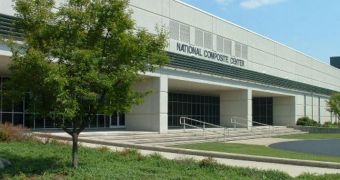Experts at the University of Bristol, in the United Kingdom, announce that the town will soon become the host to the new National Composite Center (NCC), a facility dedicated to composites research and manufacture.
The endeavor is a collaboration between South West Regional Development Agency (SWRDA) and the University of Bristol, although numerous other companies and research institutes have already announced their intentions to participate in the endeavor.
Some of these organizations include Vestas, Rolls Royce, Agusta Westland, Airbus UK, and GKN, but others are bound to announce their intentions to join too soon.
The world-class facility will be located between Bristol and Bath, in the Emerson’s Green area, where the local Science Park is located.
“It will include renewable energy technologies, with a roof incorporating photovoltaic cells to generate solar electricity to help power the Center,” explains University of Bristol Bursar Patrick Finch.
“This marks an important stage in the realization of the National Composites Center. A high quality design has been developed by our project team, led by Bristol architects Stride Treglown, as befits the first building to be completed at S-Park,” he adds.
“The building is designed to a BREEAM Excellent environmental rating, one of the first industrial buildings in Bristol to achieve this standard,” he goes on to say.
The construction of the new facility is being funded with money secured from the SWRDA, the UK Department of Business, Innovation and Skills and the European Regional Development Fund.
The building itself will be constructed by Bristol-based contractor Kier Western, and will include accommodations for the world's leading industry researchers and engineers.
One of the main reasons the NCC is being constructed is for researchers to be able to produce prototypes that validate advanced design concepts at an industrial scale.
This could lead to more rapid and efficient manufacturing processes, which means that innovations produced here will have applications over a wide range of research fields and industries.
The construction program is rather short-termed, with the building scheduled for completion in spring 2011. A formal opening is to take place later next year.
“We are delighted to have been selected as construction partner to work alongside the University of Bristol and the delivery team on this strategically important development both for Bristol and the wider economic community of the South West,” says the managing director of Kier Western, Peter Young.

 14 DAY TRIAL //
14 DAY TRIAL //